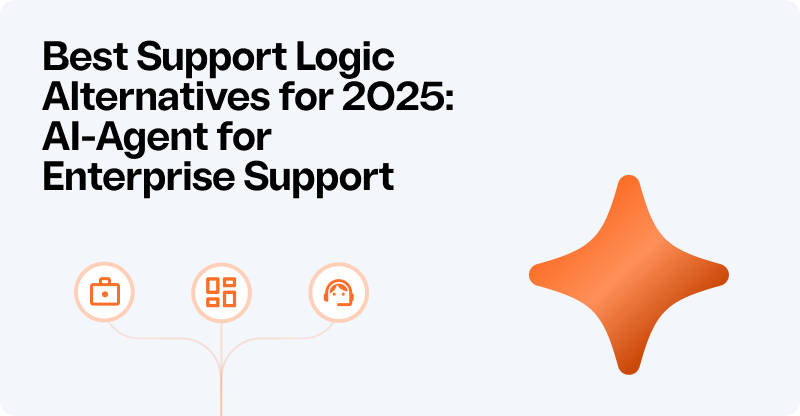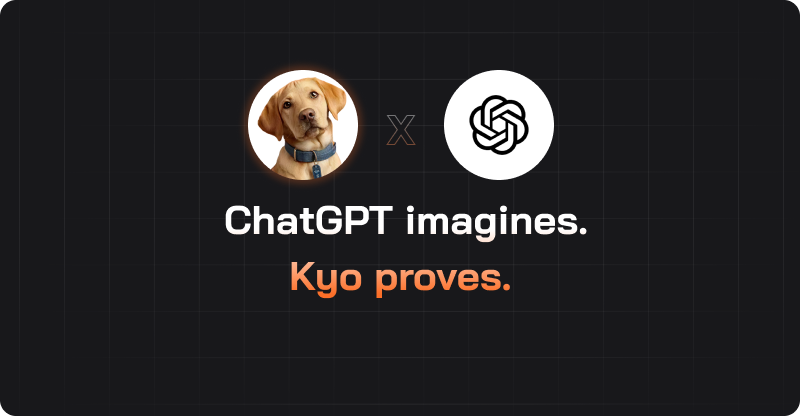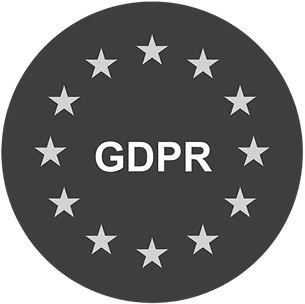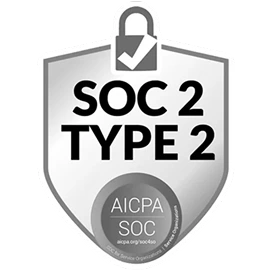The Importance of a Well-Defined Call Center Quality Assurance Checklist
A quality assurance (QA) checklist is a comprehensive list of items that quality assurance specialists use to evaluate customer service interactions during call reviews.
It serves as a roadmap for assessing the quality of each call, ensuring that all essential aspects are covered consistently.
Why is this important?
1. It Ensures Consistency and Thoroughness in Quality Monitoring
One of the primary benefits of using a well-defined QA checklist is that it ensures consistency in the quality monitoring process. When all QA specialists follow the same checklist, they evaluate calls based on the same criteria, minimizing subjectivity and personal biases.
This consistency is crucial for obtaining reliable data on call center performance. With a standardized approach, QA results can be compared across agents, teams, and time periods, providing valuable insights into areas of strength and opportunities for improvement.
Moreover, a thorough QA checklist ensures that no critical aspects of the call are overlooked. It serves as a reminder to assess various elements, such as:
- Agent's adherence to scripts and protocols
- Accuracy and completeness of information provided
- Empathy and active listening skills demonstrated
- Resolution of customer issues or concerns
By covering all these aspects systematically, a comprehensive QA checklist contributes to a more holistic evaluation of call quality.
Related Read: A Guide to Call Center Text Analytics
2. It Identifies Areas for Improvement and Training Needs
A well-structured QA checklist not only assesses individual calls but also helps identify patterns and trends in agent performance. By analyzing the data collected through the checklist, QA managers can pinpoint specific areas where agents struggle or excel.
For example, if multiple agents consistently score low on a particular checklist item, such as "active listening skills," it may indicate a need for targeted training in that area. By addressing these skill gaps through coaching and training initiatives, call centers can improve overall agent performance and customer satisfaction.
Furthermore, QA checklists can reveal systemic issues that extend beyond individual agent performance. If certain types of calls consistently receive low scores across multiple agents, it may suggest a need for process improvements, updated scripts, or better tools and resources to support agents in handling those specific situations.
3. They Help With Monitoring Different Types of Calls and Interactions
While a general QA checklist provides a solid foundation for quality monitoring, it's essential to recognize that different types of calls or customer interactions may require additional or specific evaluation criteria. Customizing checklists to suit these variations ensures that the QA process remains relevant and effective.
For instance, a technical support call may demand a greater emphasis on the agent's product knowledge and troubleshooting skills, while a sales call may focus more on the agent's ability to identify customer needs and offer appropriate solutions. Tailoring the checklist to the specific requirements of each call type allows for a more targeted and meaningful evaluation.
When creating customized checklists, consider the following factors:
- The purpose and objectives of the call type
- The specific skills and knowledge required of agents
- The common challenges or customer concerns associated with that call type
- Any industry-specific regulations or compliance requirements
By adapting the QA checklist to the unique characteristics of each call type, call centers can ensure that their quality monitoring process remains aligned with their overall goals and customer expectations.
Our Call Center Quality Assurance Checklist
We broke our checklist into four parts: communication, problem solving, product knowledge, and customer experience.
Part 1: Communication Skills Call Center QA Checklist
1. Agent speaks clearly and professionally in a friendly tone
The agent communicates clearly and professionally with customers, using a friendly and welcoming tone.
2. Agent actively listens to customers without interrupting
The agent demonstrates active listening skills by allowing customers to speak without interruption and showing genuine interest in their concerns.
3. Agent empathizes with customers' issues and concerns
The agent shows empathy towards customers' problems or frustrations, acknowledging their feelings and validating their experiences.
Part 2: The Problem-Solving Skills Call Center QA Checklist
TL;DR:
- Problem-solving skills are crucial for call center agents to handle customer issues effectively
- A structured approach to problem-solving ensures consistency and efficiency
- Effective problem-solving leads to higher customer satisfaction and loyalty
1. Agent demonstrates a thorough understanding of products, services, and policies
To effectively solve customer problems, call center agents must have a deep understanding of the company's products, services, and policies. This knowledge enables them to provide accurate information and guidance to customers, reducing the need for escalations or callbacks.
2. Agent takes ownership of the issue and works towards a satisfactory resolution
Effective problem-solving requires call center agents to take ownership of customer issues and work diligently towards finding a satisfactory resolution. This involves actively listening to the customer, asking clarifying questions, and exploring various solutions until the problem is resolved.
3. Agent provides accurate and complete information to customers
When solving problems, call center agents must provide customers with accurate and complete information. This helps build trust, reduces confusion, and prevents the need for additional calls or escalations.
4. Agent admits when unsure and seeks assistance or escalates as needed
Even the most knowledgeable call center agents may encounter situations where they are unsure of the best solution. In these cases, it's essential for agents to admit their uncertainty and seek assistance from colleagues or escalate the issue to a higher level of support.
5. Clearly explain the steps taken and the outcome to the customer
Once a solution has been found, call center agents must clearly explain the steps taken and the outcome to the customer. This helps ensure the customer understands what has been done to resolve their issue and what they can expect moving forward.
Related Read: Speech Analytics for Call Centers: 5 Use Cases & Tools
Part 3: Product & Company Knowledge Call Center QA Checklist
TL;DR:
- Ensure agents have in-depth product/service knowledge
- Train agents to answer FAQs quickly and accurately
- Empower agents to suggest suitable products based on customer needs
- Verify agents understand product compatibility and add-ons
1. Agent can explain each product/service offered by the company
To provide exceptional customer service, call center agents must have a thorough understanding of each product or service the company offers. This knowledge enables them to answer customer questions confidently and accurately.
Comprehensive product training
Companies should provide comprehensive product training to all call center agents. This training should cover the features, benefits, and limitations of each product or service. Agents should also be trained on how to explain these products in simple, easy-to-understand terms.
Regular product updates
As products and services evolve, it's crucial to keep agents informed about any changes or updates. Regular product update sessions should be conducted to ensure agents are always equipped with the latest information.
2. Agent responds quickly to frequently asked questions about the products/services
Customers often have similar questions about products or services. Call center agents should be prepared to answer these frequently asked questions (FAQs) quickly and accurately.
Maintain an up-to-date FAQ database
Creating and maintaining an up-to-date FAQ database is essential for providing swift and accurate responses. This database should include the most common questions customers ask, along with clear and concise answers.
Ongoing FAQ training
Agents should receive ongoing training on how to effectively use the FAQ database and provide answers to customers. Role-playing exercises can help agents practice their responses and improve their confidence in handling FAQs.
3. Agent suggests suitable products/services based on customer needs
Effective call center agents go beyond simply answering questions. They actively listen to customers' needs and suggest products or services that best meet those needs.
Active listening skills
Train agents to practice active listening, which involves fully concentrating on what the customer is saying, understanding their needs, and responding appropriately. Agents should ask clarifying questions to ensure they have a clear grasp of the customer's requirements.
Product recommendation training
Provide agents with training on how to suggest suitable products or services based on a customer's needs. This training should include techniques for identifying customer pain points, matching them with appropriate solutions, and presenting the benefits of the suggested products or services.
4. Agent is knowledgeable about product compatibility and add-ons
To provide comprehensive support, call center agents should be well-versed in product compatibility and available add-ons.
Compatibility matrix
Develop a compatibility matrix that outlines which products or services work well together and any potential compatibility issues. Agents should be trained on how to use this matrix to answer customer questions and make informed recommendations.
Add-on training
Ensure agents are knowledgeable about the various add-ons or accessories available for each product or service. They should be able to explain the benefits of these add-ons and how they can enhance the customer's experience.
By focusing on these essential aspects of product and company knowledge, call centers can ensure their agents are well-equipped to provide accurate, helpful, and personalized support to customers. This, in turn, leads to increased customer satisfaction and loyalty.
Part 4: Customer Experience & Satisfaction Call Center QA Checklist
- Ensure agents empathize with customers and efficiently resolve issues
- Encourage proactive problem-solving and follow-up for customer satisfaction
- Use this template to evaluate and improve your team's customer service skills
Related Read: Top 4 Customer Experience Analytics Software in 2024
1. Agent effectively empathizes with customer issues, showing genuine concern and a willingness to assist.
Empathy is a critical skill for call center agents. It allows them to connect with customers on a human level, understand their perspective, and build trust. When agents show genuine concern for the customer's issue, it helps defuse tense situations and makes the customer feel heard and valued.
To evaluate an agent's empathy skills, listen for:
- Acknowledging the customer's feelings ("I understand how frustrating this must be for you.")
- Restating the issue to confirm understanding ("So what I'm hearing is...")
- Using a calm, caring tone of voice even with upset customers
- Avoiding placing blame or making excuses
Empathy Self-Assessment Template for Agents
Rate yourself from 1-5 (1=Never, 5=Always) on each of these empathy skills:
- I let the customer explain their issue fully without interrupting: ____
- I acknowledge the customer's feelings and perspective: ____
- I restate the key points to confirm my understanding: ____
- I use a friendly, caring tone and avoid sounding robotic: ____
- I focus on solutions instead of placing blame: ____
Total Score: ____ / 25 21-25 = Excellent, 16-20 = Good, 11-15 = Needs Improvement, <10 = Unsatisfactory
Want to automate this? Check out our guide to voice call sentiment analysis for call centers.
2. Agent efficiently resolves the customer's issue and is empowered to make decisions or escalate when needed
Efficiency is important, but it should not come at the expense of quality service. The best agents are adept problem-solvers who take ownership of the issue and see it through to resolution, even if that means bringing in additional resources.
Signs of strong issue resolution skills:
- Asking probing questions to fully understand the problem
- Explaining steps taken so the customer feels informed
- Offering clear timelines for next steps or callbacks
- Knowing when to escalate and bringing in a supervisor smoothly
- Confirming the customer is satisfied with the proposed resolution
Issue Resolution Checklist
- Verified understanding of customer's issue by restating key points
- Explained troubleshooting / research steps taken to customer
- Offered a clear solution or timeline for next steps if further research required
- Escalated to supervisor if needed and introduced them to customer
- Confirmed customer was satisfied with resolution before ending call
- Sent follow-up email summarizing conversation and next steps
3. Agent is proactive in addressing potential future concerns
Great agents don't just solve the immediate problem - they also think ahead to prevent future issues. This proactive service can tremendously boost customer satisfaction and loyalty.
Examples of proactive problem-solving:
- Noticing patterns across several customer complaints and suggesting a fix
- Educating the customer on self-service options to resolve simple issues
- Anticipating related issues the customer may encounter and offering preventive tips
- Providing additional helpful info even if the customer didn't specifically ask
Proactive Service Prompts
During each customer interaction, consider:
- Have other customers reported similar issues? Is there a root cause we can address?
- How can I help this customer avoid this issue in the future?
- What other issues may stem from this one, and how can we prevent them?
- What additional tips or info would enhance this customer's experience?
4. Agent follows up with the customer to ensure satisfaction
Following up shows the customer your care extends beyond the initial call. It's an opportunity to ensure the issue was fully resolved and the customer is satisfied with the service they received.
Follow-up best practices:
- Send an email within 24 hours recapping the conversation and resolution
- Include links to helpful resources or FAQs related to their issue
- Invite the customer to reply to the email or call back with any further concerns
- Pass positive feedback to the agent and share constructive criticism privately
- Analyze feedback for trends and improvement areas
How to Improve Your Call Center Quality Assurance Process
- Implement a data-driven QA process for targeted agent coaching and development
- Use skill-based call routing to match customers with the most qualified agents
- Regularly review and update your QA checklist to align with evolving customer needs
1. Assign calls to agents based on their skills and expertise
Skill-based call routing is a powerful tool for improving call center performance. By matching customers with agents who have the specific skills and knowledge needed to handle their inquiries, you can significantly boost first call resolution rates and customer satisfaction.
To implement skill-based routing, start by identifying the key skills required for different types of calls, such as technical support, billing inquiries, or sales. Then, assess each agent's proficiency in these areas through a combination of performance metrics, customer feedback, and manager evaluations. Use this data to create skill profiles for each agent and configure your call routing system accordingly.
Benefits of skill-based call routing
- Improved first call resolution: By connecting customers with the most qualified agents, you increase the likelihood of resolving their issues on the first attempt, reducing the need for callbacks and escalations.
- Enhanced customer experience: Customers appreciate speaking with agents who have the expertise to address their concerns effectively, leading to higher satisfaction rates and loyalty.
- Targeted agent development: Skill-based routing helps identify areas where agents may need additional training or support, enabling managers to provide targeted coaching and development opportunities.
2. Do targeted coaching and development for agents
Effective quality assurance programs provide valuable insights into agent performance, highlighting areas where coaching and development can have the greatest impact.
To make the most of these insights:
- Conduct regular QA evaluations: Use your QA checklist to assess agent performance on a consistent basis, focusing on key metrics such as call handling time, adherence to scripts, and customer satisfaction.
- Provide actionable feedback: Share QA results with agents in a timely manner, offering specific, constructive feedback on areas for improvement. Use call recordings and transcripts to illustrate key points and provide examples of best practices.
- Develop personalized coaching plans: Work with agents to create individual development plans that address their unique strengths and weaknesses. Set clear, measurable goals and provide ongoing support and resources to help agents reach their full potential.
- Recognize and reward top performers: Celebrate agents who consistently exceed QA standards, using a mix of public recognition, bonuses, and other incentives to reinforce positive behaviors and keep motivation high.
By implementing these strategies, you can create a data-driven, customer-focused QA process that continuously improves call center performance and drives business success.
What Most Customer Service Teams Get Wrong About Quality Assurance
- Focusing on metrics rather than customer experience
- Failing to regularly review and update QA processes
- Not involving agents in the QA process
Overemphasis on Metrics
Many customer service teams make the mistake of prioritizing metrics such as average handle time (AHT) and first call resolution (FCR) over the actual quality of the customer experience. While these metrics are important, they should not be the sole focus of a QA program. Agents may feel pressured to rush through calls or provide quick fixes rather than taking the time to fully understand and address the customer's needs.
Instead, QA programs should focus on evaluating the overall customer experience, including factors such as empathy, active listening, and problem-solving skills. By prioritizing these soft skills, teams can ensure that agents are providing high-quality service that leaves customers feeling satisfied and valued. According to a PwC survey, 73% of all people point to customer experience as an important factor in their purchasing decisions, yet only 49% of U.S. consumers say companies provide a good customer experience today.
Failing to Regularly Review and Update QA Processes
Another common mistake is treating QA as a one-time setup rather than an ongoing process. Customer expectations and industry standards are constantly evolving, and QA programs must adapt accordingly. Teams should regularly review their QA processes to identify areas for improvement and ensure that they are aligned with current best practices.
This may involve updating scorecards, revising training materials, or implementing new tools and technologies. By continuously refining their QA processes, teams can stay ahead of the curve and provide the best possible service to their customers. PwC's research highlights the importance of continuous improvement, stating that companies that prioritize customer experience are more likely to reap tangible business benefits, including increased loyalty and revenue.
The Importance of Continuous Improvement
Continuous improvement is a key principle of effective quality assurance. Teams should foster a culture of learning and growth, encouraging agents to develop their skills and knowledge over time. This can involve providing ongoing training, coaching, and feedback, as well as recognizing and rewarding top performers.
Not Involving Agents in the QA Process
A third mistake that many teams make is treating QA as a top-down process, with managers and QA analysts dictating standards and evaluating performance without input from frontline agents. This approach can lead to a disconnect between QA goals and the realities of the customer service environment, as well as a lack of buy-in from agents.
To avoid this, teams should involve agents in the QA process from the beginning. This can include soliciting feedback on QA criteria, providing opportunities for self-evaluation, and creating a collaborative environment where agents feel empowered to contribute ideas and suggestions for improvement.
The Benefits of Agent Involvement
Involving agents in the QA process has numerous benefits, including:
- Increased engagement and ownership of the customer experience
- More realistic and achievable QA goals
- Improved communication and collaboration between agents and management
- Greater trust and transparency in the QA process
By giving agents a voice in the QA process, teams can create a more inclusive and effective quality assurance program that drives real results for the business and its customers.
Call Center Quality Assurance Checklist FAQs
- Get answers to common questions about QA checklists for call centers
- Learn best practices for implementing and optimizing your QA process
- Discover resources for further exploration of call center quality assurance
What are the key components of a call center QA checklist?
A comprehensive call center QA checklist should cover all critical aspects of customer interactions, including:
Agent performance metrics
Evaluate agents on key performance indicators (KPIs) such as first call resolution (FCR), average handle time (AHT), and customer satisfaction (CSAT) scores. These metrics provide insights into an agent's efficiency and effectiveness in handling customer inquiries.
Communication skills
Assess agents' active listening, empathy, clarity, and professionalism during customer interactions. Effective communication is crucial for building rapport and resolving issues promptly.
Adherence to scripts and procedures
Ensure agents follow approved scripts, handle objections appropriately, and adhere to company policies and procedures. Consistency in messaging and problem-solving approaches is essential for maintaining a high standard of service.
How often should call center QA assessments be conducted?
The frequency of QA assessments depends on various factors, including the size of your call center, the complexity of your products or services, and the experience level of your agents. However, industry best practices suggest:
Weekly or bi-weekly assessments for new agents
More frequent evaluations help identify areas for improvement early on and provide targeted coaching to help new agents develop their skills quickly.
Monthly assessments for experienced agents
Regular check-ins ensure that experienced agents maintain high performance standards and identify any emerging issues or training needs.
Quarterly or semi-annual calibration sessions
Bring QA evaluators together to review assessment criteria, discuss scoring discrepancies, and ensure consistency in the evaluation process.
For a deeper dive into QA assessment frequency, check out "The Complete Guide to Call Center Quality Assurance" by Craig Antonucci, which provides a comprehensive framework for designing and implementing an effective QA program.
How can call center managers use QA data to improve agent performance?
QA data offers valuable insights into agent performance and areas for improvement. To leverage this information effectively:
- Identify trends and patterns in agent performance across key metrics and behaviors
- Provide targeted coaching and training to address specific skill gaps or knowledge deficits
- Recognize and reward top-performing agents to boost morale and encourage best practices
- Use QA data to inform updates to scripts, processes, or training materials as needed
For more information on the impact of QA data on agent performance, refer to "The Definitive Guide to Contact Center Quality Assurance" by ICMI and "The State of Quality Assurance in Customer Service" by Playvox.
What role does technology play in call center quality assurance?
Technology is increasingly essential for streamlining and optimizing call center QA processes. Key tools and solutions include:
Call recording and monitoring software
Automatically record and store customer interactions for later review and evaluation. Advanced solutions may offer features like sentiment analysis and keyword spotting to help identify high-priority calls for assessment.
Scorecards and evaluation forms
Digitize your QA checklists and scoring criteria to make assessments more efficient and consistent. Look for solutions that integrate with your call recording software for a seamless workflow.
Analytics and reporting dashboards
Visualize QA data and track performance trends over time. Identify areas for improvement at the individual, team, and organizational levels.
For an in-depth exploration of the technology landscape, read "The Ultimate Guide to Call Center Technology" by Lori Bocklund and Steve Suhn, which covers the latest tools and trends shaping the industry.
Check out the best voice analytics softwares here.
How can call centers ensure QA checklists remain relevant and effective over time?
To keep your QA checklist up-to-date and aligned with evolving business needs and customer expectations:
- Review and update your checklist annually or whenever significant changes occur in your products, services, or processes
- Seek feedback from agents, supervisors, and QA evaluators on the clarity, relevance, and fairness of your assessment criteria
- Monitor industry trends and best practices to identify opportunities for improvement or innovation in your QA approach
- Continuously measure the impact of your QA program on key performance metrics like CSAT, FCR, and agent retention, and adjust your checklist as needed to drive better outcomes
Heading 1
Heading 2
Heading 3
Heading 4
Heading 5
Heading 6
Lorem ipsum dolor sit amet, consectetur adipiscing elit, sed do eiusmod tempor incididunt ut labore et dolore magna aliqua. Ut enim ad minim veniam, quis nostrud exercitation ullamco laboris nisi ut aliquip ex ea commodo consequat. Duis aute irure dolor in reprehenderit in voluptate velit esse cillum dolore eu fugiat nulla pariatur.
Block quote
Ordered list
- Item 1
- Item 2
- Item 3
Unordered list
- Item A
- Item B
- Item C
Bold text
Emphasis
Superscript
Subscript

.webp)






.png)

.webp)
.svg)












